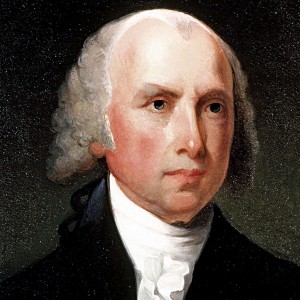By John Morrow
Kate Martin spoke at Dickinson College last Wednesday about the history of U.S. government surveillance and its implications today. At this event hosted by The Clarke Forum for Contemporary Issues, Ms. Martin sought to answer fundamental questions regarding the processes set up by the Constitution in deciding the legality of government surveillance – particularly on electronic communications. While laying out the arguments for and against National Security Agency surveillance, Kate Martin examined the historical context of liberty and national security to develop a well-rounded perspective on this issue.
Every year The Clarke Forum invites a prominent public speaker to give a lecture to students in honor of Constitution Day. I imagine they would have a difficult time finding somebody more qualified to speak on this issue than Kate Martin. As the current director of the Center for National Security Studies in Washington D.C. Kate Martin is an expert on the preservation of civil liberties in the face of government interference.
A study of the Constitution’s influence on national security policy today, however, must acknowledge the circumstances that shaped its creation. Kate Martin offered us that in her speech by citing two distinct problems arising from the Constitution that hinder clarity on law making today. “When the Constitution was written,” Martin explains, “there were in some ways two restraints on the power of government. One was the Constitution or the law and the other was the lack of a technological capacity of the government to listen on everybody’s communications all the time.” Of course the founders of the Constitution and leading foreign policy experts of a young United States had no way of foreseeing cell phone calls and email chains as a threat to national security. However, Kate Martin’s quote hints at a fundamental issue – the significant change in the meaning of national security and the resources accessible to the government over more than two centuries.
In 1792, James Madison claimed that “every word [of the U.S. Constitution]… decides a question between power and liberty.” The power entrusted to the government through the constitution is meant to preserve liberty at home. The question of how to preserve liberty could not be more different today than in 1792. Coming off the heels of revolution, the United States of the late 18th century was mostly concerned with sovereignty. Balancing expansionism, neutrality, and involvement with Europe, the U.S. was just finding its place in the world. George Herring argues in his comprehensive study of U.S. foreign relations From Colony to Superpower that “if the United States could avoid war for a generation… the growth in population and resources combined with its favorable geographic location would enable it ‘in a just cause, to bid defiance to any power on earth’ ” (From Colony to Superpower, 56). National Security and the preservation of liberty in the 1790’s is not quite the same as the email hackers and airplane hijackers we face in the 21st century.
With everything Kate Martin said and much that can be learned by studying U.S. diplomatic history it is only natural to want a conclusive answer on what the NSA is doing right and what it is doing wrong. We live in an exciting time. The world is moving, perhaps, faster now than it ever has. Yet this is where it is necessary to be level headed. In Martin’s words, this issue “is a question that our country hasn’t decided and that we all need to participate in thinking through how it should be decided.” I believe, as Kate Martin does, that more and more information on this topic will be revealed in years to come. It is necessary for us – whose interests are directly involved – to come to a conclusion over time together.


Leave a Reply